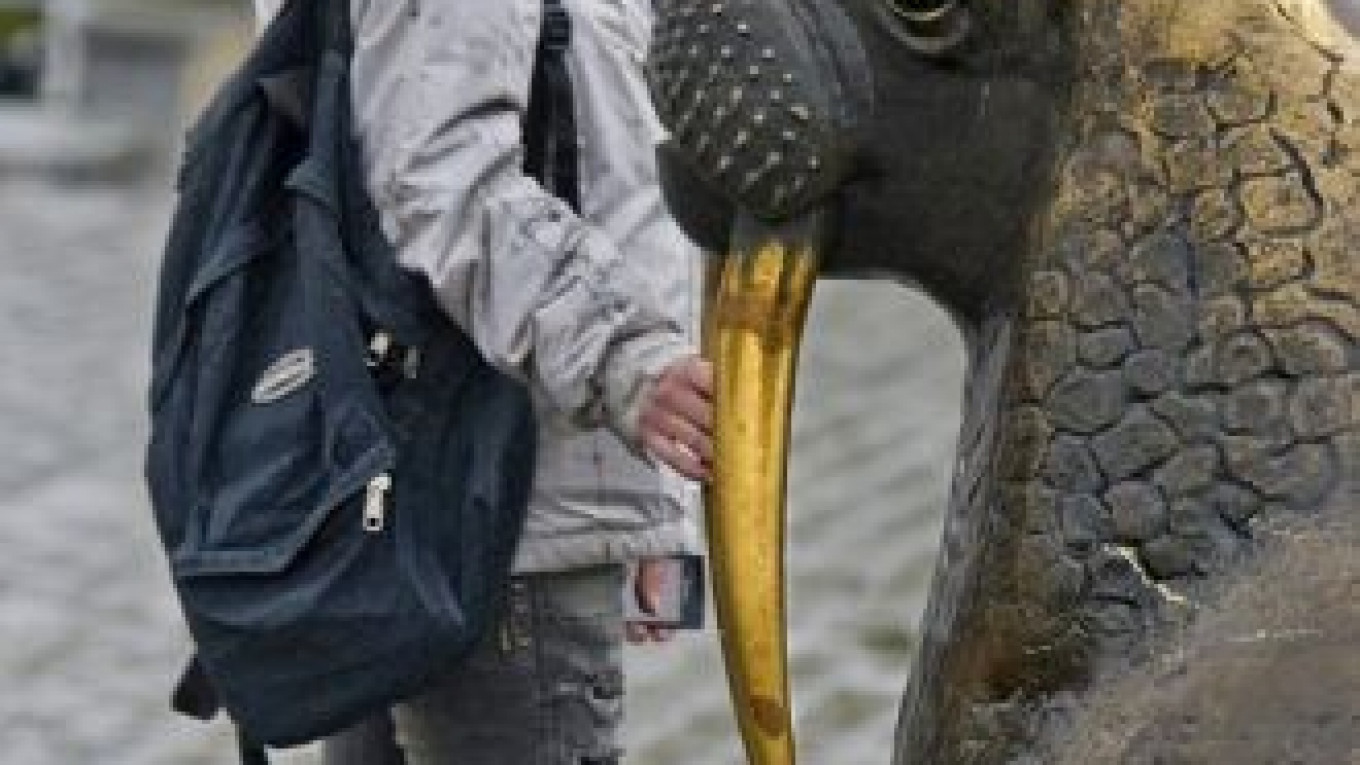Environmentalists will ask oil and gas companies to help fund an "ambitious and expensive" plan to tag and trace endangered Atlantic walruses in the Russian Arctic.
Marine scientists and environmentalists meeting Thursday to pool knowledge on one of Russia's most endangered but little understood species said the research is needed to the impact of developments, including Gazprom's Prirazlomnoye gas field in the Pechora Sea, home to a key walrus population.
"We really have very little depth of knowledge about key habitats, migration routes and population numbers," Alexei Knizhnikov, WWF Russia's oil and gas industry officer, told The Moscow Times. "Without filling that gap, we cannot write an environmental impact assessment or even come up with a mitigation plan."
The Atlantic walrus is a protected species in Russia, with less than 2,000 believed to be surviving in the Russian Arctic. WWF argues that the species is "the most sensitive" to disturbances caused by Arctic oil and gas exploration. In 1995, the Norwegian-based North Atlantic Marine Mammal Commission estimated that there were less than 20,000 remaining in the wild.
The tagging program hopes to trace animals long enough to work out their main migration routes.
"It's an ambitious project and to speak honestly, quite an expensive one," said Alexei Knizhnikov, who estimated that costs could run to "about $100,000."
"We're hoping different stakeholders, including the oil and gas sector, will contribute. They, too, have an interest in understanding the impact of their projects," he said.
Scientists also hope to extend a system for satellite-monitoring of the animals to the Laptev and East Siberian seas next summer.
"They're about 2 1/2 meters long, so it's quite understandable that we can see them from space," Knizhnikov explained.
Pilot satellite surveys of two islands in the Pechora Sea this summer showed about 200 and 400 individuals on each. Scientists say this is an important step toward coming up with more exact population figures, but warn that it does not mean there are 600 individuals — the photographs were taken of different areas at different times, and it is quite possible that animals swam between islands and showed up in both photos.
The group will also lobby for more protected areas in the Arctic in a bid to preserve biodiversity, Mikhail Stishov, the group's biodiversity director, said at a separate event Thursday.
"Increasing the number of protected areas cannot stop climate change, but it can save animals. So in the coming year, we expect to develop 13 principal schemes for Arctic reserves and begin the process of their formation," he said.
Stishov was speaking at an event for corporations that have donated funds for polar bear conservation. Several companies, including Coca-Cola, Yves Rocher Vostok and Breeze Control, have taken part in an "adoption" scheme in which companies donate 30,000 rubles per adopted bear to support groups of indigenous people residing in the polar bear habitat who combat poaching and help monitor populations.
A Message from The Moscow Times:
Dear readers,
We are facing unprecedented challenges. Russia's Prosecutor General's Office has designated The Moscow Times as an "undesirable" organization, criminalizing our work and putting our staff at risk of prosecution. This follows our earlier unjust labeling as a "foreign agent."
These actions are direct attempts to silence independent journalism in Russia. The authorities claim our work "discredits the decisions of the Russian leadership." We see things differently: we strive to provide accurate, unbiased reporting on Russia.
We, the journalists of The Moscow Times, refuse to be silenced. But to continue our work, we need your help.
Your support, no matter how small, makes a world of difference. If you can, please support us monthly starting from just $2. It's quick to set up, and every contribution makes a significant impact.
By supporting The Moscow Times, you're defending open, independent journalism in the face of repression. Thank you for standing with us.
Remind me later.






